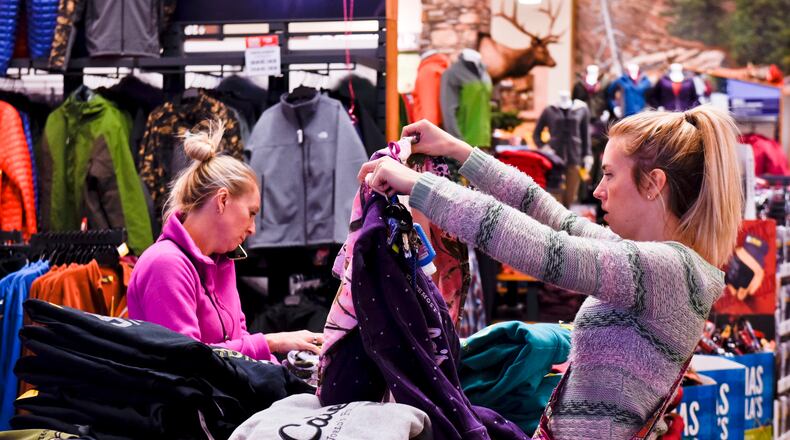“The problem stems from retailers trying to be very customer-focused, which is a great idea because you certainly want to please your customer,” said John North, the president and CEO of the Dayton Better Business Bureau. “But the more lenient you are with your return policy, the more you’re opening yourself up to fraudulent returns.
Some types of fraud are incredibly prevalent this time of year. People will practice "wardrobing," where they return merchandise after using it. For example, someone might buy a dress or a suit for a party, and return it the next week when they're finished with it.
WANT MORE BUSINESS NEWS? SUBSCRIBE TO OUR FREE, DAILY NEWSLETTER
Others might try returning stolen merchandise for quick cash, or return items bought with a stolen credit card. And often times, an employee of a store might be involved, North said. Clerks could be working with friends to falsify returns to split a profit, or they doctor false receipts.
Consumers are the ones who are ultimately impacted by frequent practices of fraud, as retailers crack down on stealing and tighten up their return policies. According to ConsumerWorld.org’s annual return policy survey, several retailers are changing holiday returns to combat lost profits.
About 92 percent of retailers have experienced stolen items coming back into the store as a return, according to the NRF. And about 5 percent of stores make their return policies stricter during the holidays, said Benjamin Glaser, features editor of dealsnews.com.
RELATED: Shipping companies expect package volume to skyrocket
“You have stores that give you as little as two weeks for returns,” he said. “Barnes and Noble and Forever 21 are kind of famous for their very strict, stingy return policies.”
Kohl’s has enacted an end date of Jan. 21 for “premium electronics” when the store normally has an open-ended policy. Costco now has a return period of 90 days for major appliances, and Macy’s has also changed its open-ended policy.
"Return fraud remains a critical issue for retailers with the impact spanning far and wide, in-store and online," said Bob Moraca, NRF vice president of loss prevention. "While technology has played a significant role in deterring many in-person fraudulent transactions that would have otherwise gone unseen, there is little that can be done to prevent a determined criminal who will find a loophole one way or another."
With more technology, retailers face a double-edged sword. Being able to track inventory and add additional security allows retailers to weed out scammers, but it also allows easier online theft and quicker ways to steal, North said.
RELATED: Online sales driving increases in holiday shopping
Online shopping will be impacted by the influx in returned gifts. Holiday shoppers are projected to return more than 5.8 million packages during the first full week of January. In 2016, shoppers returned 5 million packages during the peak returns week.
“Online shoppers want the same level of choice, control and convenience making their returns as they do making their purchases,” said Teresa Finley, chief marketing officer for UPS. “UPS helps retailers provide shoppers with a satisfying returns experience while managing rising returns volume and the complexities of providing a seamless omnichannel shopping experience.”
Online shoppers report the best returns experience includes free returns shipping, a hassle-free returns policy, easy-to-print return labels, timely refunds, and a return label in the box.
RELATED: Shoppers hit spending record on Cyber Monday
The Better Business Bureau gave a few tips to shoppers returning items online and in stores:
• Consumers should know the return policy, which is usually on the back of the receipt, before they head back to stores.
• If consumers are unsure about an electronic item, they shouldn’t take it out of the packaging. Some retailers won’t accept electronics that have been opened.
• Hold onto receipts. Some retailers won’t accept the return at all, or they will give shoppers less than what was originally paid for.
FIVE QUICK BUSINESS READS:
• The Limited closes stores locally, offers 90 percent off all items
• 5 things to know about Kettering today
• Feds settle discrimination complaint against Dayton-area bank
About the Author
